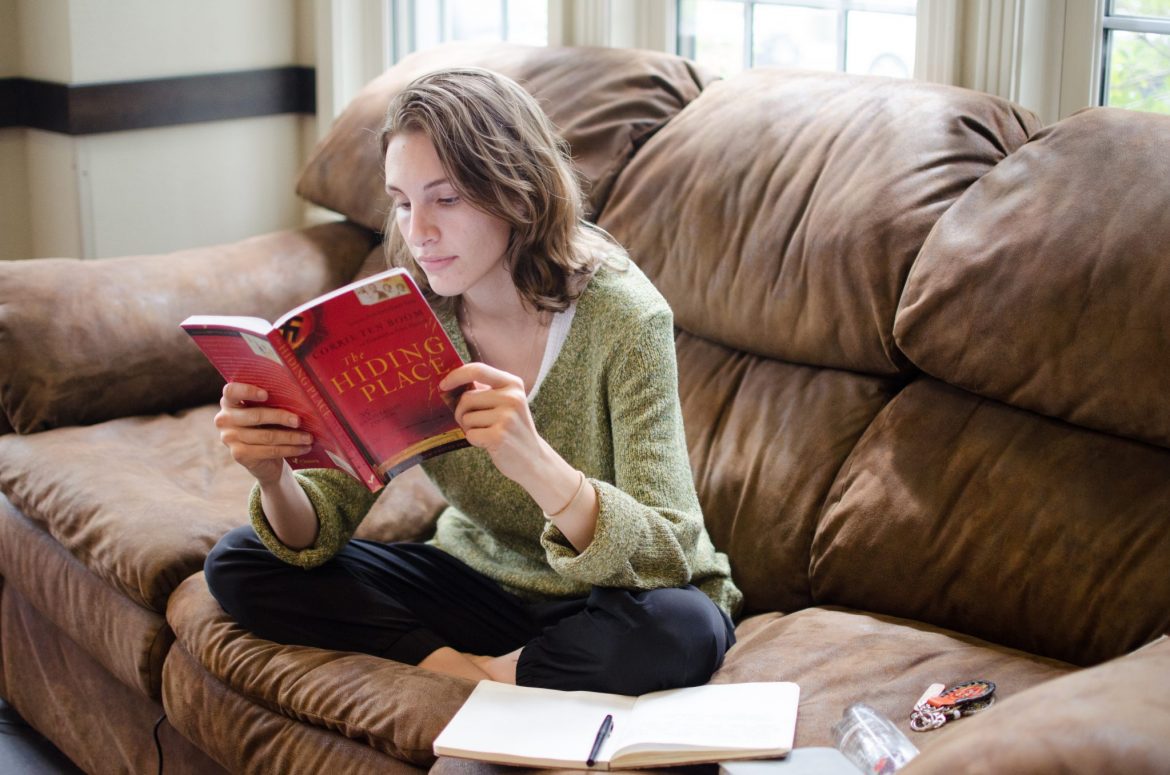The genius of Corrie Ten Boom’s “The Hiding Place” lies not in style, vernacular, or intrigue — though they are integral. Instead, you find yourself in her leather shoes, brutalized, intimidated and stumbling toward God. Though Ten Boom’s story unfolds in a concentration camp at the peak of World War II, somehow her struggles don’t seem all too different from ours. That is her genius. She relates to you because you are her brother or sister in Christ, unbound by time, space and circumstance.
“The Hiding Place” is the autobiography of Corrie Ten Boom, the first female watchmaker to be licensed in the Netherlands. A devout Christian, she and her family follow their faith, risking their lives to hide Jews and refugees of Nazi Germany and its allies. They are captured and subjected to cruelty beyond comprehension in several Nazi concentration camps.
We are all familiar with World War II and the mass terror and tragedy it beheld. It is sometimes difficult to look back and learn from trials. That is why “The Hiding Place” exists, and why I encourage you to read it. It is here for us to learn to observe God in every portion of humanity. If he exists in prisons infested with insects and rodents, established on foundations of hatred and slaughter, he exists in your deepest pits.
For artists and bibliophiles, Ten Boom’s voice flows like rich coffee spilling from the cracked Dutch tea kettle simmering eternally on her mother’s stove. Still, due to the subject matter, it’s not an easy read. However, it is a rewarding one in the sense that one can experience profound truth in a beautiful way.
When I first read “The Hiding Place,” I was on a journey. In my own pit, I struggled to find God’s voice in my monotony. Ten Boom was there. She explained to me that she didn’t know God’s plans, either. But, years later, looking back, she saw them forming clearly. She realized that she needed to learn to trust him, first. Now, when I grow impatient for lack of purpose, I remember Ten Boom, and I am satisfied in God.
This is not to say that Ten Boom waited lazily for God’s deliverance. Her family, against the wishes of their government and their own safety, hid Jews and other refugees in their household because they knew righteousness. When preparing to do something difficult, I often consider their monumental display of faith. How trivial it seems to worry about tests and grades once I compare my situation to Ten Boom’s. And even then, I am reminded that there is no trial too small to be valid. I’m encouraged to struggle on, as well.
“The Hiding Place” is not just an inspiring story, but an honest documentation of history; that should not be taken lightly. If you wish to realize that humanity existed on both sides of the Holocaust, read this book. If you wish to expand your knowledge of God’s nature, read this book. If you are frustrated with who you are or who God is, or who you want them both to be, I encourage you to turn a few pages. You might find yourself getting lost and found with a dusty old watchmaker, in the muck and triumph of “The Hiding Place.”
